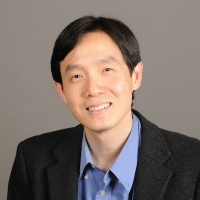Event
"Sinicization" and Chinese Supremacism in Southern Song Historiography on the Northern Dynasties
Professor Shao-yun Yang, Denison University

The study of historical thought and history-writing in Song China has flourished in recent years, but some areas remain inadequately understood. One of these has to do with the treatment of the early medieval Northern Dynasties in Southern Song historiography. Past studies have assumed that geopolitical circumstances (that is, the Jurchen Jin occupation of north China) led Southern Song historians and philosophers to reject, on ethnic grounds, any possibility of the “barbarian” Northern Dynasties being legitimate. The idea that foreign conquerors could gain legitimacy by “Sinicizing” themselves culturally was, according to such reasoning, only acceptable or appealing in the Jurchen-ruled north. This talk will show that the story was significantly more complex. By analyzing early thirteenth-century historical works by Zhu Fu (1140-1215), Ye Shi (1150-1223), and Nangong Jingyi (fl. 1236), I will argue that the discourse of “Sinicization” first became an important aspect of Chinese historical interpretation in the Southern Song, and that it originated not as a challenge to the supremacist ideology of Chinese superiority but as a way to reconcile that ideology with a problematic historical reality. I will also explore the question of whether the rise of the Mongols had any impact on this discourse.
Professor Shao-yun Yang received his Ph.D. from the University of California, Berkeley and teaches East Asian history at Denison University. A second-generation descendant of Chinese immigrants to Singapore, he has published several articles on the intellectual history of Chinese ethnic identity and Chinese attitudes toward ethnocultural others during the medieval period. His first book, The Way of the Barbarians: Redrawing Ethnic Boundaries in Tang and Song China, is forthcoming from the University of Washington Press.
